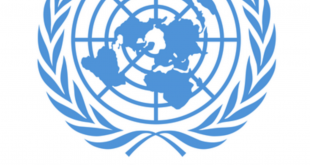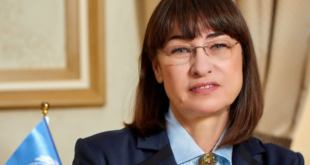There has been positive response to the appeal by the Ukrainian president for EU membership. But it won’t come soon.
Dorina Baltag*
On Sunday, the fourth day of Russia’s invasion of Ukraine, its president, Volodymyr Zelenskyy, appealed for it to be granted membership of the European Union. On Tuesday, members of the European Parliament overwhelmingly approved, with 637 votes in favour, a resolution which called for a range of measures and seemed to offer a European perspective to the country.
Ukraine expressed its interest in the EU soon after declaring its independence from the collapsing Soviet Union in 1991. This was understood as a foreign-policy reorientation which would open new prospects for co-operation with Western countries and bring modernisation and socio-economic development.
It was not however until after the Eastern Partnership was established in 2009 that the EU-Ukraine relationship was institutionalised, through the conclusion in 2014 of the Association Agreement. The agreement is a comprehensive document—circa 2,140 pages, including 46 annexes, three protocols and a joint declaration—published in the Official Journal. The detailed provisions imply alignment of Ukrainian laws and policies with the EU acquis, which requires extensive legislative and regulatory approximation, including sophisticated mechanisms to secure the uniform interpretation and effective implementation of relevant EU legislation.
‘One of us’
The president of the European Commission, Ursula von der Leyen, told Euronews on Sunday that Ukraine is ‘one of us and we want them in the European Union’. But she does not have the power to grant any country accession, nor even to grant official candidate status. Such decisions are taken by the 27 member states in unanimity, after the applicant makes a formal request and the commission gives an official opinion.
The conditions for membership are far from simple. Ukraine has to comply with the Copenhagen criteria, including that it has ‘stable institutions guaranteeing democracy, the rule of law, human rights and respect for and protection of minorities’. It must accept all EU legislation and then go through a process of assessment by the commission, only after which does the Council of the EU, representing the member states, decide.
Explicit support for Ukraine’s candidacy status—to be granted ‘immediately’—came on Monday from eight other central- and Eastern-European states: Poland, Bulgaria, the Czech Republic, Estonia, Latvia, Lithuania, Slovakia and Slovenia. Three more from the region—Croatia, Romania and Hungary—quickly rowed in. These countries have customarily been more open to further EU enlargement than sceptics in the West.
The ‘Weimar triangle’ comprising France, Germany and Poland met in Lodz on Tuesday, reaffirming their commitment to ‘strengthening the political association and economic integration of Ukraine with the European Union and its internal market‘. Yet the German position was more nuanced when in Berlin on Monday the foreign minister, Annalena Baerbock, spoke alongside her Slovenian counterpart, Anže Logar. Answering diplomatically a question on the prospects of Ukraine’s integration to the EU, in the light of von der Leyen’s remark, Baerbock emphasised that this could not be done in a few months and would involve deep internal transformations.
A similar position was taken the same day by the Dutch prime minister, Mark Rutte, who during a parliamentary debate stressed the complex, complicated and time-consuming nature of the enlargement process, claiming this would not be helpful for Ukraine at this moment. This was echoed by his Spanish counterpart, Pedro Sánchez, who emphasised EU requirements and the need for Ukrainian reforms.
Political will
The EU is faced with unprecedented geopolitical circumstances and fast-track accession is not foreseen in the treaties. Nonetheless, this boils down to political will.
Historically, member states have disagreed on the pace of enlargement. Aspirants are thus in accession talks yet in limbo: Turkey received candidate status back in 1987 but not much has moved since, while Serbia and Montenegro have seen no breakthroughs. Bulgaria is blocking the opening of talks with North Macedonia.
The political sensitivities some member states have expressed on Ukraine are linked to concern as to reactions in the Western-Balkan countries, for whom there is a special process. Moreover, progress towards membership would set a precedent for Moldova and Georgia. They too have signed association agreements with the EU and along with Ukraine declared themselves an ‘associated trio’ in May 2021, united by their membership ambition. They too are former Soviet republics—with embedded frozen conflicts.
The European Parliament resolution adopted on Tuesday recommended stronger sanctions on Russia, extending to Belarus, swift provision of defensive weapons to Ukraine and activation of the temporary-protection directive to support all Ukrainians fleeing the country. But at point 39 it called upon the EU institutions merely ‘to work towards’ granting EU candidate status to Ukraine. This would not herald a fast-track process and indeed would leave Ukraine with what it already has—the 2014 Association Agreement as the framework within which Ukraine’s further integration would be pursued.
So, the question remains: is EU accession a genuine prospect for Ukraine?
*The writer is a post-doctoral researcher at the Institute for Diplomacy and International Governance at Loughborough University. Her research covers democratisation in the Eastern Partnership and EU diplomacy.
From: Social Europe.






